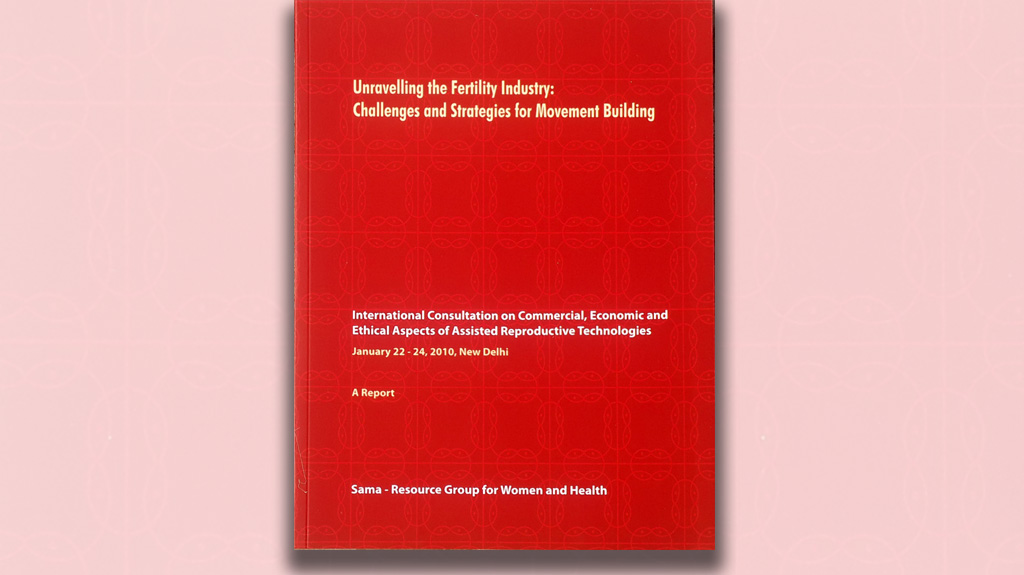
2010 | Sama
This report is based on the international consultation organised by Sama during 22-24 January 2010 in Delhi. The consultation focussed on the commercial, economic and ethical aspects of Assisted Reproductive Technologies (ARTs)
Sama has been voicing the concerns around ARTs and on related issues like the ICMR’s (Indian Council of Medical Research) National Guidelines for Accreditation, Supervision and Regulation of ART clinics in India, the proposed Draft Assisted Reproductive Technologies (Regulation) Bill and Rules, and advocating for a comprehensive legislation with government bodies and policy makers. Sama has been providing platforms for collective debate, discussions and evolving strategies on issues around ARTs in the sphere of hazardous contraceptive technologies and the medicalization of commercial, economic and ethical aspects of assisted reproductive technologies In this consultation inter-linkages were made with other movements and networks working on issues of health, women’s rights, sexual rights, disability rights, child rights, law, and bioethics.
The consultation reflected and discussed on how ARTs interacted with poverty, business and commerce, religion, patriarchy and caste in various contexts around the globe; the process through which the proliferation, standardisation and routinisation of ARTs was taking shape of an industry; and learnt from the experiences of regions where these technologies were more advance and anticipate the results to come in countries where these technologies were catching up. It sought to bring into focus concerns from a public health perspective, addressing the underlying causes of infertility and the arguments of occupational patterns, environmental changes, lifestyle changes that have negatively affected fertility levels and created conditions for people to undergo these technologies. The consultation brought together a balanced representation of activists, scholars and researchers from different movements, networks and organizations from across the world working on similar concerns.
The consultation helped in culling out strategies from various countries and examining whether they can be used trans-nationally, mapping how different kinds of ‘infrastructure’, agencies and agents facilitated the movement of technologies and build collaborations and networks towards movement building around new reproductive and genetic technologies in an effort towards garnering health rights.




